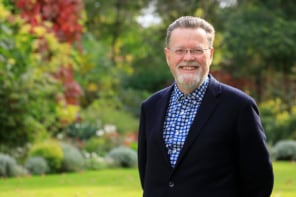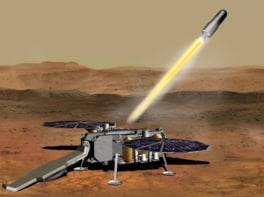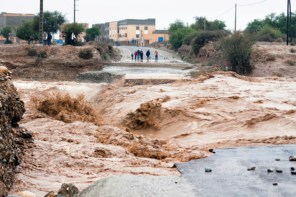Robert P Crease talks to Marcia McNutt, who takes over as president of the US National Academy of Sciences next month

Housed in a distinguished neoclassical building a few blocks west of the White House in Washington DC, the US National Academy of Sciences (NAS), was founded in 1863 during the American Civil War, when Congress and war departments were inundated with military-related ideas and inventions. The NAS is not a government agency, yet is required by law to “investigate, examine, experiment and report upon any subject of science or art” at the US government’s request. A former president called it the “home of science in America”, while the academy’s website describes it as “where the nation turns for independent, expert advice”.
At a time when Washington is flooded with powerful and wealthy lobbyists, the NAS is one of the few places one can expect to turn for objective guidance. The agency issues this guidance in the form of reports, which it does several times a year. During its 150-year history, some reports have attracted wide attention, most notably Rising Above the Gathering Storm (2006), on how science and technology can improve American competitiveness. Other reports, such as America’s Climate Choices (2011), have not.
On 1 July the academy will have a new president, the geophysicist Marcia McNutt, who is stepping down after three years as editor-in-chief of Science magazine to take the post. As the 22nd president of the NAS, McNutt will also be the first woman in the position.
I had arranged to meet McNutt at her current office in the American Association for the Advancement of Science building, a few blocks east of the White House. But an emergency shutdown of the Washington Metro system had paralysed transportation in the city, and so I wound up having to Skype her at her home. I intended to quiz her about a different kind of breakdown; in Washington nowadays, politicians often distort, ignore or even reject science. What, I wanted to know, could the NAS do to make politicians heed its advice?
Passing well
It turned out I was already on the wrong foot. That’s a common misconception, she said; the academy’s reports are not intended for politicians or the public. Commissioned by a sponsor – typically Congress or a federal agency – they are designed to inform that agency’s decision-making. While the reports are public, it is up to the sponsor to implement or further promote them. Occasionally, the academy uses its own resources to develop its own report on a timely and pressing issue – Climate Choices is an example – but such unsponsored reports rarely have the impact of sponsored ones.
“It’s like when you play basketball and you pass off the ball and there’s nobody there to catch it,” McNutt said. “It’s not as useful a strategy.”
She ticked off several sponsored academy reports that exemplify its mission, including three that led to the founding of the US Geological Survey (1879), the US Forest Service (1905) and the National Park Service (1916). Other reports were behind the opening of the Panama Canal and the building of the US highway system. More recent reports have tackled air quality and safety standards, examined the link between HIV and AIDS as a public-health epidemic, and provided the blueprint for the Human Genome Project.
McNutt cautioned against judging too soon whether an academy report is influential. A triggering event can attract new attention and authority to a previously overlooked report. Oil Spill Dispersants: Efficacy and Effects, published in 2005, “flew off the shelves” five years later following the Deepwater Horizon oil spill in the Gulf of Mexico, creating the largest oil spill in US waters. Even Climate Choices may grow in impact, McNutt continued, if the US begins to implement the Kyoto accords. Furthermore, agencies sometimes commission a report to buttress actions they intend to take or are already taking.
I asked what changes McNutt intended to make in the report process. She mentioned several. One involves streamlining. NAS reports have sometimes been criticized for taking years to complete, and McNutt said she might consider introducing project managers to reduce “choke points” in the process.
Another idea is to review the academy’s committee structure. The federal government has a notoriously complex committee system. “There are 26 federal agencies with jurisdiction over water issues,” McNutt said. But the right committee structure at the NAS can help. It has a single water committee, for instance. “That means we can simplify where the government can’t. Our committee can suggest which part of the water issue can be dealt with by the Army Corps, which part by the other agencies and so on.” Her idea is to make sure all NAS committees are that effective.
In a Science editorial a few weeks before we spoke, McNutt discussed an episode involving water contamination in Flint, Michigan, the danger of which had initially been dismissed by the state’s own scientists but exposed by out-of-state scientists. In the editorial, she wondered if “trust in science has been poisoned, along with the water” and I asked if she thought this a matter for the academy. There are a few ways to address it, she said. Besides issuing reports, for instance, the NAS also hands out awards, and McNutt suggested that these awards include “emphasis on how scientists made those breakthroughs”, to include personal ethics.
The critical point
In the wartime environment of its founding a century and a half ago, the NAS’s reports were treated as essential documents by the alert and responsive sponsors. These reports can have less impact when they concern politicized issues such as climate change and vaccinations, but McNutt hopes to counteract that. “By reminding the public of the importance of science to our quality of life and security,” McNutt told me, “the academy can elevate the role of science in society while safeguarding its integrity.”
- Enjoy the rest of the June 2016 issue of Physics World in our digital magazine or via the Physics World app for any iOS or Android smartphone or tablet. Membership of the Institute of Physics required



